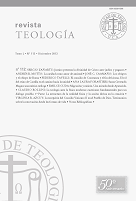The Concil of Constance and the end of Schism. The Role of the Kingdom of Castile in the Way Towards Unity
Palavras-chave:
Concilio de Constanza, Cisma de Occidente, Castilla, Martín V, Benedicto XIIIResumo
The Council of Constance (1414-1418) was the great western Schism’s final instance of solution. Its decisions resulted in among others issues the election of Martin V (1417-1431) with which the Christian world recovered the unity that had lost for almost forty years. The kingdom of Castile "one of the five most important European monarchies" was Benedict XIII’s (1394-1423) firmest supporter, who was the steadfast opponent to the meeting at Constance. For that reason its participation was particularly important in order to guarantee the Council’s full legitimacy and the end of the Schism. This article makes an assessment of the causes that led to the incorporation of Castile to the Council’s sessions, as well as to establish the significance of its performance in the conciliar alliances which led to the union.
Downloads
Downloads
Publicado
Como Citar
Edição
Secção
Licença














 Teología
Teología